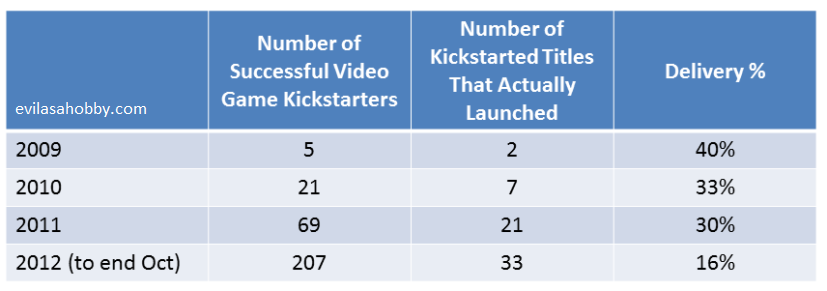HardOCP News
[H] News
- Joined
- Dec 31, 1969
- Messages
- 0
Only one third of the Kickstarted video game projects actually ends up in the hands of backers? That's not a very good percentage. 
Let’s cut to the chase: having spent a long time manually scraping Kickstarter video game project data and following up each and every of the 366 successfully funded projects between 2009 and 2012, the data indicates that only around 1 in 3 have fully delivered their promised title to their backers.
![[H]ard|Forum](/styles/hardforum/xenforo/logo_dark.png)
